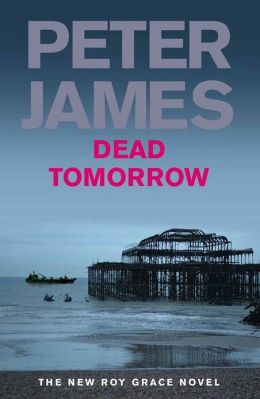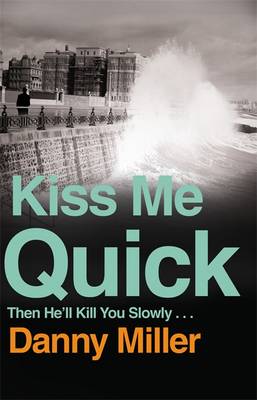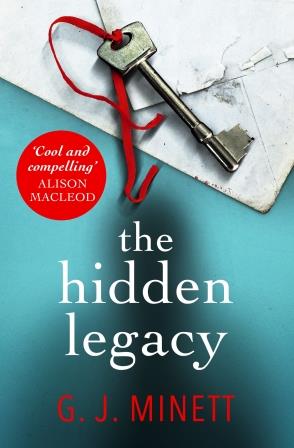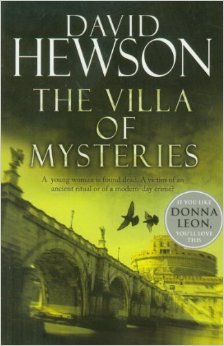
What would you do to protect your child?
An overly dramatic title, a grim cover picture and the fact that this was a seriously hefty hardback (536 pages) were overlooked as I read the intriguing blurb for my crime reading group’s latest pick.
What’s it about?
As a shocking story grips the newspapers in Brighton, Lynn Beckett begins to panic. Her daughter, Caitlin, needs a new liver – now. As the NHS appears unreliable and Caitlin deteriorates, Lynn struggles to disregard the dead bodies discovered, organless, off the coast of Sussex. Surely they have nothing to do with her quest for a black market liver?
Meanwhile, Detective Superintendent Roy Grace is (somewhat irritatingly) ‘haunted’ by the cadavers and the trail of corruption he uncovers, ‘even more so’ than any other case he has previously pursued. (I get it: he’s a caring guy; now please wind down the drama. It simply cannot be true that every case is more shockingly and emotionally disturbing than the last.)
The premise was interesting and, although I had not previously read anything by Peter James, I knew that this was his fifth book in the series following this detective.
What’s it like?
My initial impressions of the book were not brilliant. Each short chapter focused on a different set of characters and, although I could see how they were likely to be linked together, I felt that the catalogue of characters introduced at the start made it a little difficult to find a foothold in the story. There is a lot of ‘set up’; when I was nearly half way through the contact between some of the characters was still yet to be established. However, James’ writing is detailed and his habit of sharing his characters’ inner thoughts helped to make reading more engaging. In fact, some people are perhaps described in an unnecessary amount of detail, in that they are only present in a chapter or three, but this certainly helped me to picture the scene.
A gloomy atmosphere is established early on: all the characters are hard working and most of them are miserable. In an effort to accurately depict the strains of working in the police force, James grants one of his characters the misery of a failing marriage. Combine this with a novel following a mother’s fear of losing her daughter and the indignities of the life of Romanian street children, and you have a very dark novel. This is not a criticism, just a warning regarding the style. I felt that the overall tone of the novel, with some exceptions, was rather bleak. This suited the subject matter, as none of the circumstances could be easily resolved.
Style
Each chapter heralds a shift in point of view. Sometimes this is Lynn’s, or Detective Superintendent Grace, but often it is someone connected to the case, whether that is a criminal, potential victim or another police officer. Initially I found the dramatic cliffhangers at the end of each chapter irritating (chapter one concludes: “He…pressed the starter button of his beloved motorbike for the last time in his life.”) but I stopped minding after a while. I felt that at least they were properly dramatic and not simply exaggerating. Each characters’ viewpoint is distinct and well expressed through the third person narration. As the chapters are usually only a few pages, the shifts between perspectives help to create a sense of pace, which is vital in the early chapters due to all the scene setting. Even in the early chapters, there is plenty happening, and I was never impatient for the plot to progress; I could simply feel that this was still ‘setting up’ later events, which could possibly irritate some readers.
One minor irritation that leapt out at me suggested a certain lack of editing. A description of Grace’s reaction to the physical appearance of a dead man is repeated thirty pages later, word for word – for a whole paragraph. This is a minor criticism, but it did make me feel the overall product was perhaps slightly less polished than it could be.
Overall, the style is not literary but nor is it generally clunky. The informally expressed thoughts of the characters help to give the book a certain sense of reality, which is reinforced by references to modern culture. (Although these references will undoubtedly date the books in the years to come.)
This is a classic police procedural rather than a tale of ‘brilliant detective saves day’ and I enjoyed it all the more for that. There are countless briefing meetings during which leads and suspects are discussed, which sounds dull but which I found quite interesting. That is not to say that Grace doesn’t have his brilliant moments, and there was an irritating use of chance towards the end of the story, but on the whole the story felt very firmly grounded in reality, which I liked.
It’s clear James has done his research (in case you couldn’t tell, he thanks about a million people at the end of the book) but, unlike some authors, I didn’t feel that it was shoehorned into the story. Instead, the background knowledge supported the story that was being told.
Romanian setting
That said, I was rather surprised to read in an interview with James online that some of the Romanian characters in the book are real. As I read the interview, it became clear that the issues in the story are as important to James as the story itself. Essentially, the story flits between Brighton and Romania, gradually developing the horrific story of what happens to those Romanians promised a bright future in England. I felt that James’ use of setting was very effective. It has kindled a genuine interest in Romania in me and I am already looking for non-fiction works on the subject. To me, this is the mark of a successful story: it has lingered with me after I closed the pages.
Final thoughts
This is definitely worth a read if you enjoy police procedurals. Fans of the series will be able to see Grace and Cleo’s relationship develop, and will also spot a development in the ongoing Sandy storyline. Newcomers will not be disadvantaged by their late entry into the sequence as this does work as a standalone novel. In fact, other than wanting to follow the development of the detective’s personal relationship, the only incentive to read the next in the series is the experience of reading this book. (How lovely – a writer who trusts his readership.)
The conclusion is suitably gritty (absolutely right I thought) and there is an epilogue, although I would have liked a final chapter set in Romania. (That said, it is more fitting that there isn’t one: it leaves the reader uncertain about the characters’ futures, which is more convincing than any follow up could be.) The storyline is not unduly violent, with the notable exception of one episode involving a Romanian girl. Instead, it is consistently dark, with a faint undercurrent of hope.
Quite compelling.


